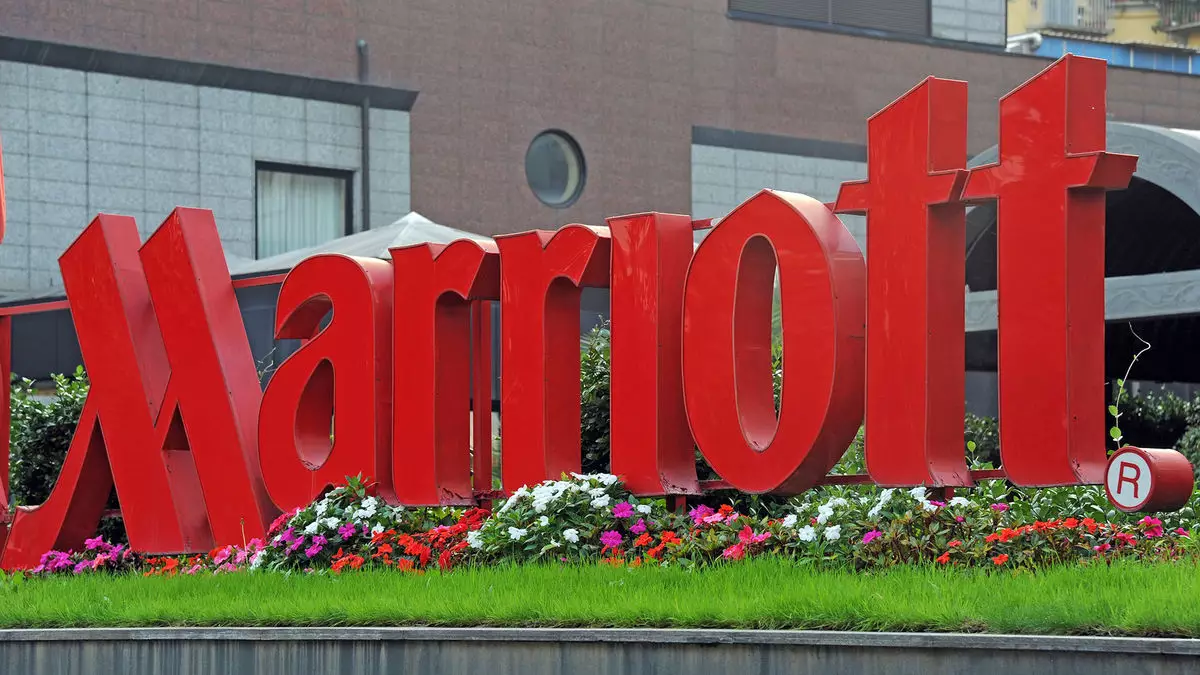Marriott International, a leading global hotel chain, is sounding alarms over the anticipated repercussions of the upcoming U.S. presidential election on its financial performance. During the recent Q3 earnings call, executives unveiled projections that could significantly disrupt the company’s operations, particularly in North America—home to a substantial segment of its customer base. This article delves into the insights provided by Marriott’s leadership and analyzes the broader implications of political events on the hospitality industry.
Marriott’s CFO, Leeny Oberg, brought to light startling predictions that point toward a 3% decrease in revenue per available room (RevPAR) for November across the U.S. and Canada. Oberg specified that this decline is mainly due to a notable reduction in both transient and group bookings, underscoring how political events can complicate consumer behavior and purchasing decisions. Such a decrease is anticipated to foreshadow an additional 1% drop in RevPAR for the entire fourth quarter, marking a stark escalation in adverse effects compared to prior elections.
The hospitality sector thrives on stability and predictability—conditions that are severely disrupted during major political events. The potential fallout already materialized as business plans had to be adjusted amid concerns over conference attendance and group travel. With nearly double the room capacity of major competitors, Marriott’s strength in group bookings has been pivotal to its performance; however, it remains vulnerable to external political pressures that can lead to significant shifts in consumer confidence.
Despite the grim outlook projected for the fourth quarter, Marriott’s CEO, Anthony Capuano, highlighted that group business has exhibited resilience thus far. Demonstrating a year-on-year increase of 10% in group RevPAR for two consecutive quarters, this segment remains a critical revenue source. As companies consider attending scheduled events and meetings in the face of uncertainty, the stability in group bookings signals a level of resilience that the industry had underestimated.
Furthermore, looking towards 2025, Marriott anticipates a 7% increase in group revenue driven by improvements in room nights and average daily rates (ADR). This optimism stands in stark contrast to the current economic turmoil spurred by the electoral climate, suggesting that the hospitality sector may rebound once the political situation stabilizes. However, this confidence might be tested, as consumer and corporate spending can take unexpected turns based on election outcomes.
Examining Marriott’s Q3 performance provides deeper insight into the varying dynamics of its business segments. While the company reported overall growth in RevPAR of 3% year-over-year, there was a clear discrepancy in performance between different hotel categories. Luxury and full-service hotels outperformed their select-service counterparts, indicating a shift in traveler preferences towards more upscale accommodations, likely driven by a resurgence in post-pandemic travel.
Additionally, the performance of leisure travel, though flat, still exceeded pre-pandemic levels—signifying a potential shift in consumer behavior that clings to luxury experiences even in uncertain times. While transient revenue from business segments shrank, group business emerged as the haven for retail recovery.
It’s also noteworthy that Marriott’s international performance varied significantly. Globally, RevPAR outside the U.S. grew by an impressive 5%, particularly in Europe, the Middle East, Africa (EMEA), and the Asia Pacific region, driven by strong demand. However, the environment in Greater China starkly contrasted with an 8% decline, attributed to external economic pressures and domestic woes. Notably, macroeconomic factors often create a ripple effect that echoes even within a global corporation, showcasing how interconnected our world has become.
Marriott International’s Q3 report illustrates the intricate balance hospitality companies must maintain amid political volatility. Although the firm has charted a path of growth in certain areas, external factors remain pivotal in navigating future challenges. As the upcoming election looms large, the hospitality industry, and particularly Marriott, must remain vigilant, adapting strategies to shield against the shocks imposed by political uncertainties while harnessing the potential growth opportunities that lie in its more stable and profitable revenue streams.

